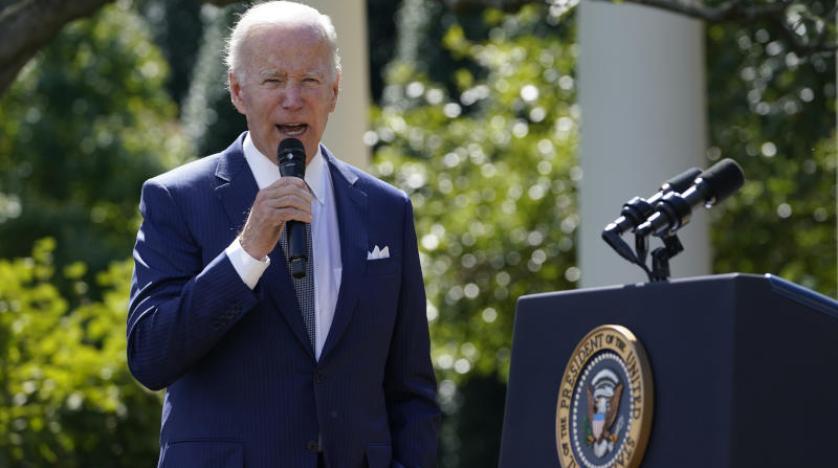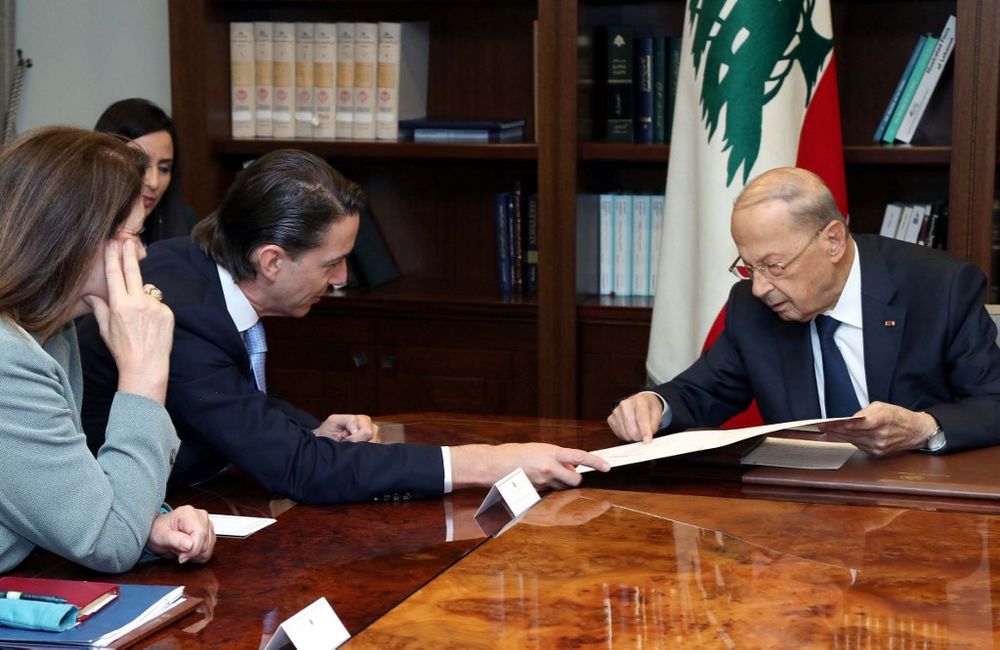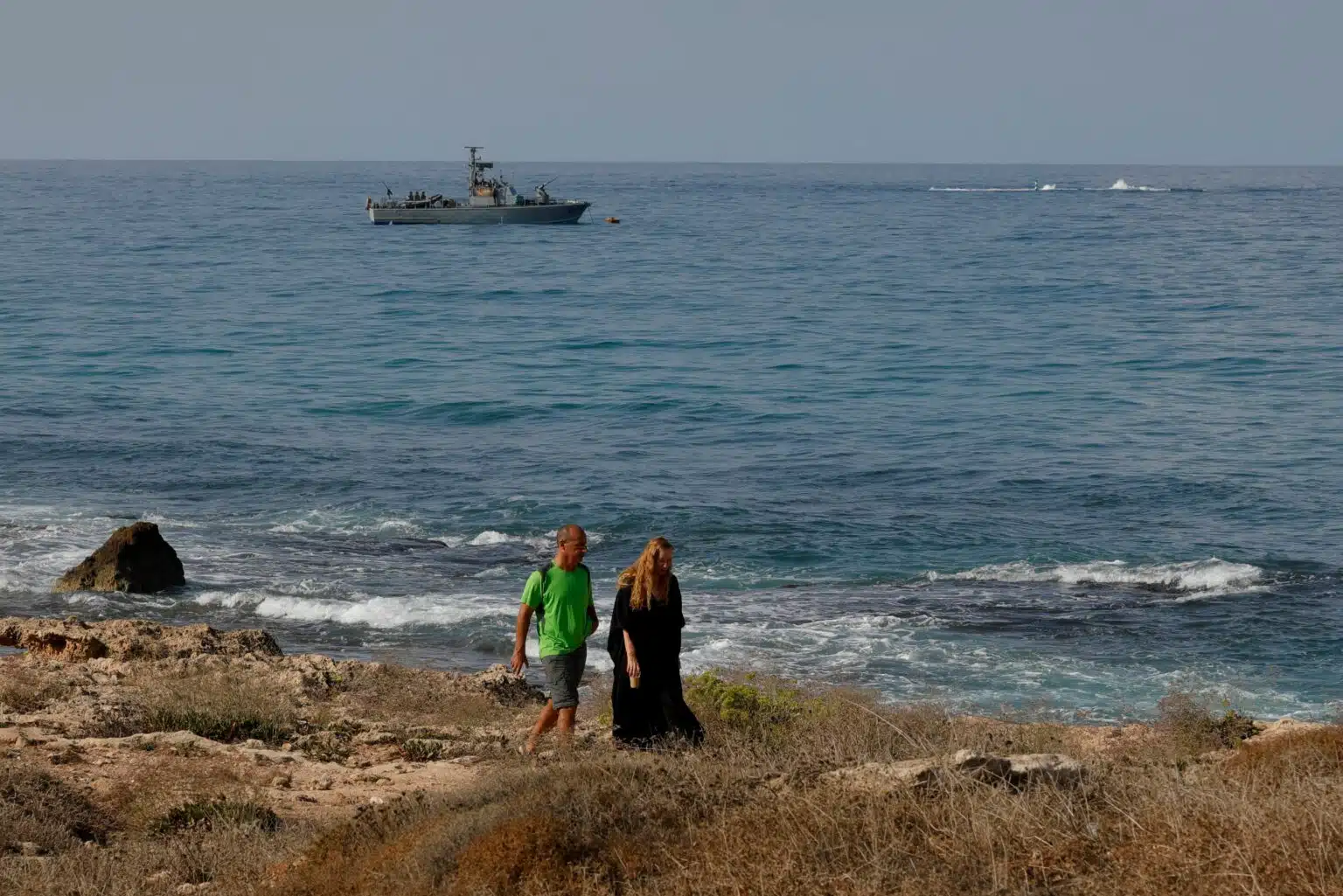By- G Brinda
Leaders from Israel and Lebanon said independently on Tuesday that they had struck a historic agreement that would end a long-running maritime boundary issue involving significant oil and gas assets in the Mediterranean.
The neighbors, who are still officially at war, would be able to use the Mediterranean Sea’s underground natural gas deposits if an agreement was reached. Israeli Prime Minister Yair Lapid promised to boost the country’s economy and increase security. President of Lebanon Michel Aoun deemed the terms to be “satisfactory.” The pact, which covers a triangle of the Mediterranean measuring 860 sq km (330 sq miles), has not been made public. However, according to rumors, Israel would control the Karish gas field as well as a tiny portion of the potential Qana gas production. Lebanon would be in charge of the remaining portions of Qana and be responsible for paying Israel royalties for any gas taken from the Israeli side.

The 860-square-kilometer (332-square-mile) portion of the sea has been a source of contention between the surrounding nations for many years, and the United States has been attempting to mediate a settlement. It contains the Karish oil and gas field and the Qanaa potential, which are anticipated to enter the Israeli and Lebanese seas, respectively, as a result of the agreement. Israel has said that it would soon start removing gas and oil from Karish and exporting it to Europe.
Officials from Lebanon have stated that the cooperation is not a move towards normalizing ties between the two nations, which are formally at war, and that no “treaty” would be made with Israel as a result of it.
Eyal Hulata, Israel’s national security advisor and chief negotiator at the negotiations, reportedly stated in a statement on Tuesday morning that “all our objectives were honored and the revisions that we requested were remedied. We safeguarded Israel’s security interests and are moving toward a historic accord.
Elias Bou Saab, the envoy for Lebanon, had earlier said that the accord had allayed the nation’s prior worries. According to Saab, the most recent draught “takes into account all of Lebanon’s criteria and we believe that the other side should feel the same.” Saab said this to Reuters.
Since the two nations proclaimed overlapping limits in the Mediterranean Sea in 2011, the problem has been for a little more than ten years. The United Nations was invited to arbitrate since, legally, both nations had been at war. According to a 2011 BBC story, the matter acquired importance after Israel found two gas resources ten years ago off its coast, which experts had predicted may help it become an energy exporter.
Despite the fact that Israel is already producing natural gas in neighboring areas, this deal settles a territorial issue in the eastern Mediterranean Sea, where Lebanon wishes to conduct natural gas exploration. This deal would allow both nations to receive royalties from the gas field, which is situated on the maritime border between them. It also establishes the first sea boundary between Israel and Lebanon.
The deal, according to a New York Times story, is also anticipated to end the immediate threat of hostilities between Israel and Hezbollah terrorists in Lebanon, after concerns about an escalation if talks broke down.

The shared land boundary between Israel and Lebanon, which is still up for debate but where both nations are committed to a ceasefire, is not mentioned in the deal. This line, often known as the Blue Line, was established by the UN in the years following Israel’s withdrawal from southern Lebanon in 2000. The United Nations soldiers are presently policing this land boundary. According to a Reuters story, resolving the Israel-Lebanon land boundary conflict is significantly more difficult and lacks the intensity of the oil component. A wider peace agreement, which is unlikely to happen anytime soon, would also likely be required for any resolution involving this land boundary, according to the Reuters article.
When approached by CNN on Tuesday, Hezbollah declined to comment, but the armed organization, which is funded by Iran, has previously declared it will uphold any deal made by the Lebanese government. Although the historic deal has no impact on land boundaries, it is anticipated to reduce tensions in both countries’ economies and security.












